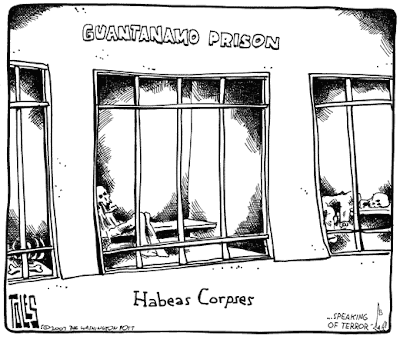What's going on with the nuclear deal with North Korea?
 Apparently, the breakdown in negotiations regarding North Korea’s agreement to shut down a nuclear reactor in exchange for aid and diplomatic incentives is not being reported in the mainstream news.
Apparently, the breakdown in negotiations regarding North Korea’s agreement to shut down a nuclear reactor in exchange for aid and diplomatic incentives is not being reported in the mainstream news.
I Googled “North Korea” and only found US Envoy Wraps up Meetings in China on North Korea Banking Issue, posted today by the Voice of America. The “banking issue” is a problem related to North Korea’s agreement to stop its nuclear weapons program.
I’ve been keeping my eye on what’s going on with North Korea, having posted about it twice on February 12, here and here and again on March 22, when it was reported that the North Korean nuclear talks had broken down.
The reason the talks broke down in March? The “banking issue.” My March 22 post explains the problem, but the link to the Kansas City Sun no longer works, so I went back to the Nuclear Threat Initiative's March 21 e-mail alert, North Korea Refuses to Talk, Nuclear Negotiations Recess.
Excerpts: “Pyongyang said it would not begin to follow through on its Feb. 13 denuclearization agreement until the United States lifted economic sanctions. Washington closed its investigation of the Banco Delta Asia in Macau, which has been linked to illicit North Korean financial activities, which opened the door for the bank to transfer $25 million in frozen funds to the Stalinist state.
So here we are, on the last day of May, and the problem still hasn’t been solved, despite Rice’s “success.”
"Washington has since encouraged the bank to release the funds, but no other bank has been willing to accept the money, reportedly out of fear that U.S. sanctions would result.”
My question: What can the U.S. do to allay the fear of sanctions? I can’t believe there isn’t something that would work.
Based on our track record regarding agreements with North Korea, which I describe in more detail here, I’m not surprised at this impasse. However, if the nuclear deal with North Korea falls apart, I won’t be surprised if North Korea is blamed.
(photo- cover of North Korea, South Korea, by John Feffer, which I referred to in my February 12 post.)









 The past two days I've posted on the likelihood of an attack on Iran,
The past two days I've posted on the likelihood of an attack on Iran, 



















